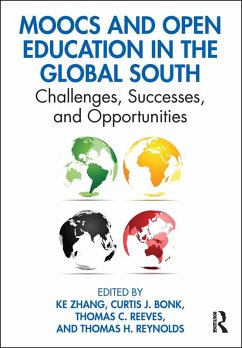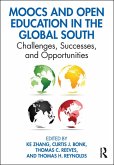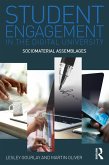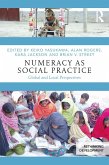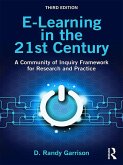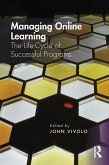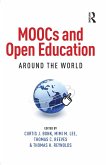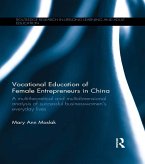MOOCs and Open Education in the Global South (eBook, PDF)
Challenges, Successes, and Opportunities
Redaktion: Zhang, Ke; Reynolds, Thomas; Reeves, Thomas; Bonk, Curtis
45,95 €
45,95 €
inkl. MwSt.
Sofort per Download lieferbar

23 °P sammeln
45,95 €
Als Download kaufen

45,95 €
inkl. MwSt.
Sofort per Download lieferbar

23 °P sammeln
Jetzt verschenken
Alle Infos zum eBook verschenken
45,95 €
inkl. MwSt.
Sofort per Download lieferbar
Alle Infos zum eBook verschenken

23 °P sammeln
MOOCs and Open Education in the Global South (eBook, PDF)
Challenges, Successes, and Opportunities
Redaktion: Zhang, Ke; Reynolds, Thomas; Reeves, Thomas; Bonk, Curtis
- Format: PDF
- Merkliste
- Auf die Merkliste
- Bewerten Bewerten
- Teilen
- Produkt teilen
- Produkterinnerung
- Produkterinnerung

Bitte loggen Sie sich zunächst in Ihr Kundenkonto ein oder registrieren Sie sich bei
bücher.de, um das eBook-Abo tolino select nutzen zu können.
Hier können Sie sich einloggen
Hier können Sie sich einloggen
Sie sind bereits eingeloggt. Klicken Sie auf 2. tolino select Abo, um fortzufahren.

Bitte loggen Sie sich zunächst in Ihr Kundenkonto ein oder registrieren Sie sich bei bücher.de, um das eBook-Abo tolino select nutzen zu können.
MOOCs and Open Education in the Global South explores the initiatives that are leveraging these flexible systems to educate, train, and empower populations previously denied access to such opportunities.
- Geräte: PC
- ohne Kopierschutz
- eBook Hilfe
- Größe: 17.88MB
Andere Kunden interessierten sich auch für
![MOOCs and Open Education in the Global South (eBook, ePUB) MOOCs and Open Education in the Global South (eBook, ePUB)]() MOOCs and Open Education in the Global South (eBook, ePUB)45,95 €
MOOCs and Open Education in the Global South (eBook, ePUB)45,95 €![Student Engagement in the Digital University (eBook, PDF) Student Engagement in the Digital University (eBook, PDF)]() Lesley GourlayStudent Engagement in the Digital University (eBook, PDF)45,95 €
Lesley GourlayStudent Engagement in the Digital University (eBook, PDF)45,95 €![Numeracy as Social Practice (eBook, PDF) Numeracy as Social Practice (eBook, PDF)]() Numeracy as Social Practice (eBook, PDF)44,95 €
Numeracy as Social Practice (eBook, PDF)44,95 €![E-Learning in the 21st Century (eBook, PDF) E-Learning in the 21st Century (eBook, PDF)]() D. Randy GarrisonE-Learning in the 21st Century (eBook, PDF)39,95 €
D. Randy GarrisonE-Learning in the 21st Century (eBook, PDF)39,95 €![Managing Online Learning (eBook, PDF) Managing Online Learning (eBook, PDF)]() Managing Online Learning (eBook, PDF)37,95 €
Managing Online Learning (eBook, PDF)37,95 €![MOOCs and Open Education Around the World (eBook, PDF) MOOCs and Open Education Around the World (eBook, PDF)]() MOOCs and Open Education Around the World (eBook, PDF)39,95 €
MOOCs and Open Education Around the World (eBook, PDF)39,95 €![Vocational Education of Female Entrepreneurs in China (eBook, PDF) Vocational Education of Female Entrepreneurs in China (eBook, PDF)]() Mary Ann MaslakVocational Education of Female Entrepreneurs in China (eBook, PDF)47,95 €
Mary Ann MaslakVocational Education of Female Entrepreneurs in China (eBook, PDF)47,95 €-
-
-
MOOCs and Open Education in the Global South explores the initiatives that are leveraging these flexible systems to educate, train, and empower populations previously denied access to such opportunities.
Dieser Download kann aus rechtlichen Gründen nur mit Rechnungsadresse in A, B, BG, CY, CZ, D, DK, EW, E, FIN, F, GR, HR, H, IRL, I, LT, L, LR, M, NL, PL, P, R, S, SLO, SK ausgeliefert werden.
Produktdetails
- Produktdetails
- Verlag: Taylor & Francis eBooks
- Seitenzahl: 392
- Erscheinungstermin: 5. November 2019
- Englisch
- ISBN-13: 9780429677540
- Artikelnr.: 58077735
- Verlag: Taylor & Francis eBooks
- Seitenzahl: 392
- Erscheinungstermin: 5. November 2019
- Englisch
- ISBN-13: 9780429677540
- Artikelnr.: 58077735
- Herstellerkennzeichnung Die Herstellerinformationen sind derzeit nicht verfügbar.
Ke Zhang is Professor of Learning Design and Technology at Wayne State University, USA. Curtis J. Bonk is Professor of Instructional Systems Technology at Indiana University, USA, and President of CourseShare. Thomas C. Reeves is Professor Emeritus of Learning, Design, and Technology at The University of Georgia, USA. Thomas H. Reynolds is Professor of Teacher Education at National University, USA.
Dedication Foreword Preface Chapter 1. MOOCs and Open Education in the
Global South: Successes and Challenges Section 1: Historical Perspectives
Chapter 2. An Historical Journey into K-MOOCs Leading to Possible
Collaborations with North Korea Chapter 3. Current State of Practice and
Research on MOOCs in Mainland China: A Critical Review Section 2: Current
Practices and Designs Chapter 4. The Different Faces of Open in Egypt
Chapter 5. Delivering on the Promise of Open Educational Resources:
Pitfalls and Strategies Chapter 6. Massive Online Open Courses: The State
of Practice in Indonesia Chapter 7. Orchestrating Shifts in Perspectives
and Practices about the Design of MOOCs Chapter 8. A Different Kind of MOOC
Architecture for Emerging Economies in Oceania and the Pacific Chapter 9.
Nepali High School Students in Massive Open Online Courses (MOOCs):
Impressive Results and a Promising Future Chapter 10. MOOCs in Latin
America: Trends and Issues Chapter 11. The Emotional Benefits of Diversity
in MOOCs: Reshaping Views of Online Education Through Exposure to Global
Learners Section 3: MOOCs and Open Education for Professional Development
Chapter 12. Insights into a Nationwide pdMOOC portal: Bilgeis.net of Turkey
Chapter 13. Promoting Open Education and MOOCs in Thailand: A Research
Based Design Approach Chapter 14. Capacity Building of Teachers: A Case
Study of the Technology-Enabled Learning (TEL) Massive Open Online Courses
Chapter 15. The Development of MOOCs as Incubation Space for Professional
and Institutional Learning: A View from South Africa Section 4:
Multi-Country Collaborations and Collections Chapter 16. Courses for a
Cause: MOOC Contributions to a "Better Place for All" Chapter 17. MOOCs in
Six Emerging APEC Member Economies: Trends, Research and Recommendations
Chapter 18. A Glimpse on How MOOCs from IDB are Impacting Learners in Latin
America and the Caribbean Section 5: Government Policies and Strategies
Chapter 19. Advancing Open Education Policy in Brazilian Higher Education
Chapter 20. Global Trends and Policy Strategies and their Implications for
the Sustainable Development of MOOCs in Malaysia Chapter 21. OERs for
Development (OERs4D) Framework as Designed and Implemented in the
Philippines Chapter 22. Disruptive Learning: Inspiring the Advancement of
MOOCs in the Middle East Section 6: Organizational Innovations Chapter 23.
Open Education at the World Bank: A Significant Dividend for Development
Chapter 24. From OER to OEP: The case of an OER-integrated teacher
education eLearning program in Africa Chapter 25. Responsive innovations in
MOOCs for Development: A case study of AgMOOCs in India Chapter 26.
Implementing a Skills Accelerator to Prepare Students in Kenya for
Online-Only Bachelors and MBA Programs that Require MOOCs and OER: A Case
Study Section 7: The Future of MOOCs and Open Education Chapter 27.
Evolution of Online Learning Environments and the Emergence of Intelligent
MOOCs Chapter 28. MOOCs and Open Education in the Global South: Future
Opportunities Acknowledgments
Global South: Successes and Challenges Section 1: Historical Perspectives
Chapter 2. An Historical Journey into K-MOOCs Leading to Possible
Collaborations with North Korea Chapter 3. Current State of Practice and
Research on MOOCs in Mainland China: A Critical Review Section 2: Current
Practices and Designs Chapter 4. The Different Faces of Open in Egypt
Chapter 5. Delivering on the Promise of Open Educational Resources:
Pitfalls and Strategies Chapter 6. Massive Online Open Courses: The State
of Practice in Indonesia Chapter 7. Orchestrating Shifts in Perspectives
and Practices about the Design of MOOCs Chapter 8. A Different Kind of MOOC
Architecture for Emerging Economies in Oceania and the Pacific Chapter 9.
Nepali High School Students in Massive Open Online Courses (MOOCs):
Impressive Results and a Promising Future Chapter 10. MOOCs in Latin
America: Trends and Issues Chapter 11. The Emotional Benefits of Diversity
in MOOCs: Reshaping Views of Online Education Through Exposure to Global
Learners Section 3: MOOCs and Open Education for Professional Development
Chapter 12. Insights into a Nationwide pdMOOC portal: Bilgeis.net of Turkey
Chapter 13. Promoting Open Education and MOOCs in Thailand: A Research
Based Design Approach Chapter 14. Capacity Building of Teachers: A Case
Study of the Technology-Enabled Learning (TEL) Massive Open Online Courses
Chapter 15. The Development of MOOCs as Incubation Space for Professional
and Institutional Learning: A View from South Africa Section 4:
Multi-Country Collaborations and Collections Chapter 16. Courses for a
Cause: MOOC Contributions to a "Better Place for All" Chapter 17. MOOCs in
Six Emerging APEC Member Economies: Trends, Research and Recommendations
Chapter 18. A Glimpse on How MOOCs from IDB are Impacting Learners in Latin
America and the Caribbean Section 5: Government Policies and Strategies
Chapter 19. Advancing Open Education Policy in Brazilian Higher Education
Chapter 20. Global Trends and Policy Strategies and their Implications for
the Sustainable Development of MOOCs in Malaysia Chapter 21. OERs for
Development (OERs4D) Framework as Designed and Implemented in the
Philippines Chapter 22. Disruptive Learning: Inspiring the Advancement of
MOOCs in the Middle East Section 6: Organizational Innovations Chapter 23.
Open Education at the World Bank: A Significant Dividend for Development
Chapter 24. From OER to OEP: The case of an OER-integrated teacher
education eLearning program in Africa Chapter 25. Responsive innovations in
MOOCs for Development: A case study of AgMOOCs in India Chapter 26.
Implementing a Skills Accelerator to Prepare Students in Kenya for
Online-Only Bachelors and MBA Programs that Require MOOCs and OER: A Case
Study Section 7: The Future of MOOCs and Open Education Chapter 27.
Evolution of Online Learning Environments and the Emergence of Intelligent
MOOCs Chapter 28. MOOCs and Open Education in the Global South: Future
Opportunities Acknowledgments
Dedication Foreword Preface Chapter 1. MOOCs and Open Education in the
Global South: Successes and Challenges Section 1: Historical Perspectives
Chapter 2. An Historical Journey into K-MOOCs Leading to Possible
Collaborations with North Korea Chapter 3. Current State of Practice and
Research on MOOCs in Mainland China: A Critical Review Section 2: Current
Practices and Designs Chapter 4. The Different Faces of Open in Egypt
Chapter 5. Delivering on the Promise of Open Educational Resources:
Pitfalls and Strategies Chapter 6. Massive Online Open Courses: The State
of Practice in Indonesia Chapter 7. Orchestrating Shifts in Perspectives
and Practices about the Design of MOOCs Chapter 8. A Different Kind of MOOC
Architecture for Emerging Economies in Oceania and the Pacific Chapter 9.
Nepali High School Students in Massive Open Online Courses (MOOCs):
Impressive Results and a Promising Future Chapter 10. MOOCs in Latin
America: Trends and Issues Chapter 11. The Emotional Benefits of Diversity
in MOOCs: Reshaping Views of Online Education Through Exposure to Global
Learners Section 3: MOOCs and Open Education for Professional Development
Chapter 12. Insights into a Nationwide pdMOOC portal: Bilgeis.net of Turkey
Chapter 13. Promoting Open Education and MOOCs in Thailand: A Research
Based Design Approach Chapter 14. Capacity Building of Teachers: A Case
Study of the Technology-Enabled Learning (TEL) Massive Open Online Courses
Chapter 15. The Development of MOOCs as Incubation Space for Professional
and Institutional Learning: A View from South Africa Section 4:
Multi-Country Collaborations and Collections Chapter 16. Courses for a
Cause: MOOC Contributions to a "Better Place for All" Chapter 17. MOOCs in
Six Emerging APEC Member Economies: Trends, Research and Recommendations
Chapter 18. A Glimpse on How MOOCs from IDB are Impacting Learners in Latin
America and the Caribbean Section 5: Government Policies and Strategies
Chapter 19. Advancing Open Education Policy in Brazilian Higher Education
Chapter 20. Global Trends and Policy Strategies and their Implications for
the Sustainable Development of MOOCs in Malaysia Chapter 21. OERs for
Development (OERs4D) Framework as Designed and Implemented in the
Philippines Chapter 22. Disruptive Learning: Inspiring the Advancement of
MOOCs in the Middle East Section 6: Organizational Innovations Chapter 23.
Open Education at the World Bank: A Significant Dividend for Development
Chapter 24. From OER to OEP: The case of an OER-integrated teacher
education eLearning program in Africa Chapter 25. Responsive innovations in
MOOCs for Development: A case study of AgMOOCs in India Chapter 26.
Implementing a Skills Accelerator to Prepare Students in Kenya for
Online-Only Bachelors and MBA Programs that Require MOOCs and OER: A Case
Study Section 7: The Future of MOOCs and Open Education Chapter 27.
Evolution of Online Learning Environments and the Emergence of Intelligent
MOOCs Chapter 28. MOOCs and Open Education in the Global South: Future
Opportunities Acknowledgments
Global South: Successes and Challenges Section 1: Historical Perspectives
Chapter 2. An Historical Journey into K-MOOCs Leading to Possible
Collaborations with North Korea Chapter 3. Current State of Practice and
Research on MOOCs in Mainland China: A Critical Review Section 2: Current
Practices and Designs Chapter 4. The Different Faces of Open in Egypt
Chapter 5. Delivering on the Promise of Open Educational Resources:
Pitfalls and Strategies Chapter 6. Massive Online Open Courses: The State
of Practice in Indonesia Chapter 7. Orchestrating Shifts in Perspectives
and Practices about the Design of MOOCs Chapter 8. A Different Kind of MOOC
Architecture for Emerging Economies in Oceania and the Pacific Chapter 9.
Nepali High School Students in Massive Open Online Courses (MOOCs):
Impressive Results and a Promising Future Chapter 10. MOOCs in Latin
America: Trends and Issues Chapter 11. The Emotional Benefits of Diversity
in MOOCs: Reshaping Views of Online Education Through Exposure to Global
Learners Section 3: MOOCs and Open Education for Professional Development
Chapter 12. Insights into a Nationwide pdMOOC portal: Bilgeis.net of Turkey
Chapter 13. Promoting Open Education and MOOCs in Thailand: A Research
Based Design Approach Chapter 14. Capacity Building of Teachers: A Case
Study of the Technology-Enabled Learning (TEL) Massive Open Online Courses
Chapter 15. The Development of MOOCs as Incubation Space for Professional
and Institutional Learning: A View from South Africa Section 4:
Multi-Country Collaborations and Collections Chapter 16. Courses for a
Cause: MOOC Contributions to a "Better Place for All" Chapter 17. MOOCs in
Six Emerging APEC Member Economies: Trends, Research and Recommendations
Chapter 18. A Glimpse on How MOOCs from IDB are Impacting Learners in Latin
America and the Caribbean Section 5: Government Policies and Strategies
Chapter 19. Advancing Open Education Policy in Brazilian Higher Education
Chapter 20. Global Trends and Policy Strategies and their Implications for
the Sustainable Development of MOOCs in Malaysia Chapter 21. OERs for
Development (OERs4D) Framework as Designed and Implemented in the
Philippines Chapter 22. Disruptive Learning: Inspiring the Advancement of
MOOCs in the Middle East Section 6: Organizational Innovations Chapter 23.
Open Education at the World Bank: A Significant Dividend for Development
Chapter 24. From OER to OEP: The case of an OER-integrated teacher
education eLearning program in Africa Chapter 25. Responsive innovations in
MOOCs for Development: A case study of AgMOOCs in India Chapter 26.
Implementing a Skills Accelerator to Prepare Students in Kenya for
Online-Only Bachelors and MBA Programs that Require MOOCs and OER: A Case
Study Section 7: The Future of MOOCs and Open Education Chapter 27.
Evolution of Online Learning Environments and the Emergence of Intelligent
MOOCs Chapter 28. MOOCs and Open Education in the Global South: Future
Opportunities Acknowledgments
